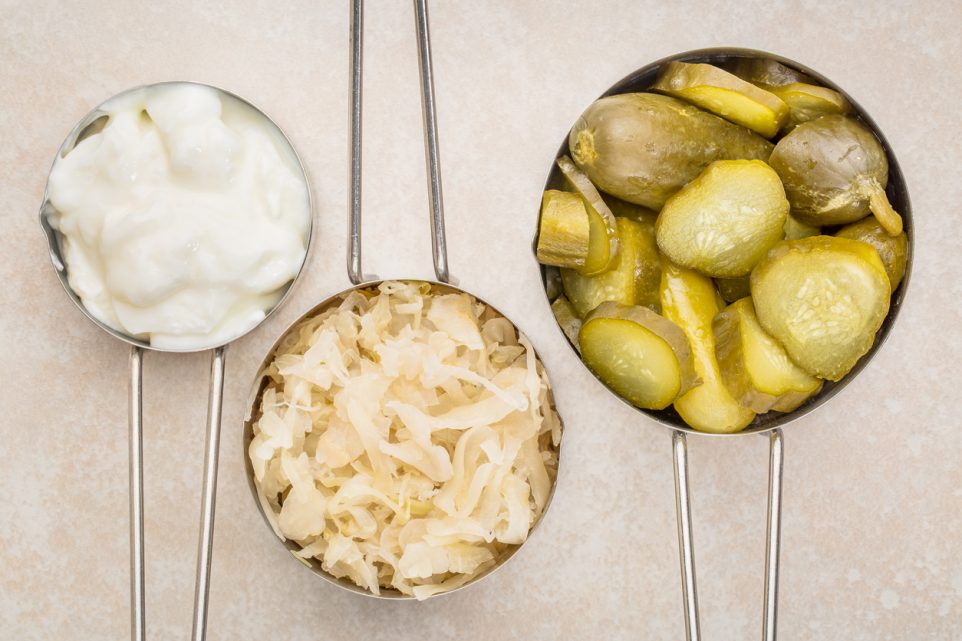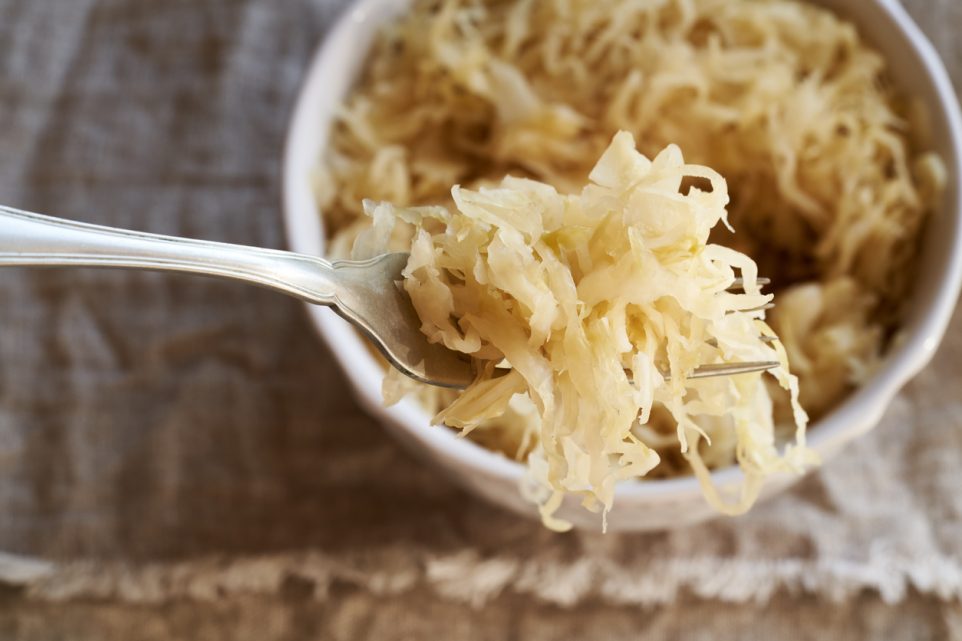3 Best Probiotic Foods for Gut Health You Should Consume Regularly

Probiotics are live microorganisms that, when administered in adequate amounts, confer a health benefit on the host. Found naturally in the human gastrointestinal tract, these beneficial bacteria play crucial roles in digesting food, destroying disease-causing microorganisms, and producing vitamins. Many studies suggest that probiotics help to maintain the intestinal barrier, enhance immune function, and regulate gut-associated inflammation.
In this article, we’ll discuss the 3 best probiotic foods and how you can incorporate them into your diet for healthy gut flora. These foods don’t just contribute to gut health but also potentially alleviate digestive disorders, enhance immune response, and reduce inflammation.
Kefir

Kefir, a tangy, yogurt-like drink, stands out as a superior probiotic food, teeming with live beneficial bacteria and yeast. Unlike regular yogurt, which contains friendly probiotics that provide temporary benefits, kefir consists of cultures—referred to as grains—that are added to cow, sheep, or goat milk. After fermenting for about 24 hours, these cultures impart kefir with its distinct characteristics and a multitude of health benefits.
One of the most significant advantages of kefir is its potent digestive benefits. The live cultures in kefir can colonize the gastrointestinal tract, offering prolonged benefits that include reducing flatulence and soothing upset stomachs. This makes kefir especially beneficial for those suffering from various gastrointestinal disorders such as irritable bowel syndrome, colitis, and gastric reflux.
For individuals who are lactose intolerant, kefir presents a notable advantage. The fermentation process largely digests the lactose in milk, transforming kefir into a lactose-friendly product that is unlikely to trigger the bloating and digestive distress commonly associated with dairy products.
Beyond digestive health, kefir has been recognized for its antibacterial properties. The probiotics in kefir can inhibit the growth of harmful bacteria such as Salmonella, H. pylori, and E. coli, enhancing overall health and preventing infections. Additionally, the presence of Vitamin K2 in full-fat kefir is crucial for bone health. Vitamin K2 facilitates the metabolism of calcium into the bones, reducing the risk of fractures and osteoporosis.
How to enjoy it: Kefir can be enjoyed in its natural form or blended into smoothies with fruits, enhancing its flavor without compromising its nutritional benefits. For those avoiding dairy, non-dairy kefir options are available, though it’s advisable to choose versions low in sugar to avoid inflammation.
Sauerkraut

Sauerkraut, a traditional fermented cabbage dish, is a powerhouse of probiotics and nutritional benefits that has been a staple in diets for centuries. This simple yet potent food is created through fermentation, a process where bacteria and yeast transform the sugars in cabbage into a range of beneficial compounds. This not only preserves the cabbage, extending its shelf life, but also enhances its nutritional profile significantly.
Fermentation of sauerkraut produces postbiotics—byproducts of the fermentation process that include dead bacterial and yeast cell walls. These post-biotics play a critical role in gut health. They provide signals to the gut microbiome, influencing its composition and activity even though they are non-viable. This interaction can significantly affect digestive health and immune function.
Sauerkraut is also rich in fibers that act as prebiotics, feeding the beneficial bacteria in the gut. This combination of prebiotics from the cabbage itself and post-biotics from the fermentation process can lead to improved gut microbiome diversity and lower inflammation markers. These effects are crucial for maintaining a healthy immune system and may contribute to reducing the risk of chronic diseases.
Sauerkraut is also particularly beneficial for people who struggle with inflammation and digestive issues, such as bloating and irregular bowel movements. Regular consumption can help stabilize the digestive processes and support the overall health of the gastrointestinal tract.
How to enjoy it: Sauerkraut can be enjoyed in many ways, making it a versatile addition to any diet. It is important to note that high temperatures can kill the beneficial bacteria in sauerkraut, so it is best consumed raw or added at the end of cooking to maintain its probiotic benefits.
Some popular ways to incorporate sauerkraut into meals include:
- As a Condiment: Adding it to dishes like sausages, hot dogs, or burgers can enhance the flavor and add a probiotic boost.
- In Salads and Sandwiches: Its crunchy texture and tangy flavor make sauerkraut a great addition to salads and sandwiches.
- With Eggs: It can be served alongside scrambled or fried eggs for a probiotic-rich breakfast.
For those new to fermented foods, it’s recommended to start with small amounts of sauerkraut to allow the gut to adjust, gradually increasing the intake as tolerated. This approach helps minimize initial digestive discomfort such as gas or bloating that can occur from the sudden introduction of probiotics and fiber.
Kombucha

Kombucha, a fermented tea that has captured the interest of health enthusiasts worldwide, is revered not just for its unique flavor but also for its potential health benefits. This effervescent concoction is made by fermenting sweetened tea with a symbiotic culture of bacteria and yeast (SCOBY). This process transforms the base ingredients into a tangy beverage with a fizzy kick, which not only makes it a delightful drink but also a vessel for delivering beneficial probiotics to the gut.
“Kombucha is so tangy and fizzy because of the fermentation process initiated by the SCOBY,” explains Tracy Lockwood Beckerman, a registered dietitian in New York City. The SCOBY digests the sugar added to the tea, converting it into various beneficial compounds, including antioxidants and trace amounts of alcohol, which contribute to its unique characteristics.
Scientifically, kombucha has shown promise in numerous health aspects, attributed to its microbial content, which includes bacteria such as Gluconobacter and Acetobacter, along with the yeast Zygosaccharomyces. Beckerman notes, “These metabolites are thought to have a ton of health-promoting components,” although she also emphasizes the need for more human clinical trials to firmly establish these benefits.
How to enjoy it: When integrating kombucha into your diet, moderation is key. Beckerman suggests, “It’s totally fine to swap kombucha in as a lower-sugar option for juice or soda.” However, due to its carbonated nature, it’s advisable to limit intake to avoid digestive issues like bloating or acid reflux. A daily intake of 8 to 12 ounces is recommended to enjoy the benefits without overindulgence.
When choosing a kombucha, Beckerman advises always opting for products packaged in dark glass bottles to protect the probiotics from light damage and avoid materials like plastic, which the beverage could degrade. She adds, “Look for a brand with the shortest ingredient list possible—water, sugar, tea, and bacteria—and no artificial flavors.”
For those new to kombucha or fermented foods in general, start with small amounts to gauge your body’s response. This approach helps mitigate potential discomfort, such as gas or bloating, as your digestive system adjusts to the influx of new bacteria.
Kombucha can be enjoyed at any time of day but is particularly refreshing during or after meals to aid digestion. However, due to its slight alcohol content produced during fermentation, it’s wise to monitor your consumption if you are sensitive to alcohol or avoid it altogether.
Building a Stronger You
Supplement Institute is the fruit of extensive online publishing experience, spanning the breadth of SEO strategies to the nuances of paid advertisements. Our journey, marked by significant achievements and learning moments, inspires our core mission: to empower our readers with an abundance of information. By sharing insights and key learnings, we aim to provide you with the knowledge needed to navigate the complex world of supplements, helping you make well-informed decisions for your health and well-being. Welcome to Supplement Institute, where information is your greatest supplement.